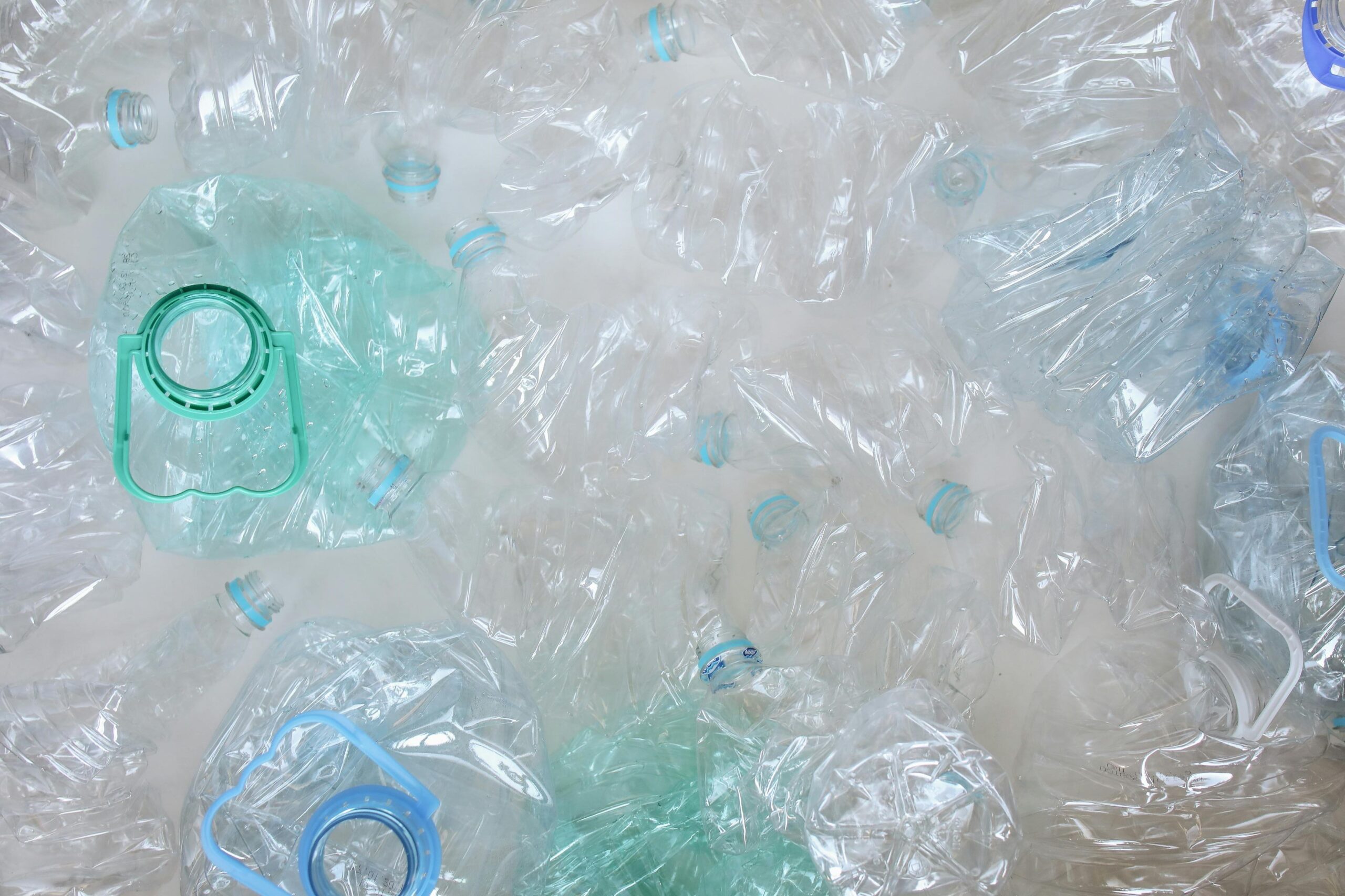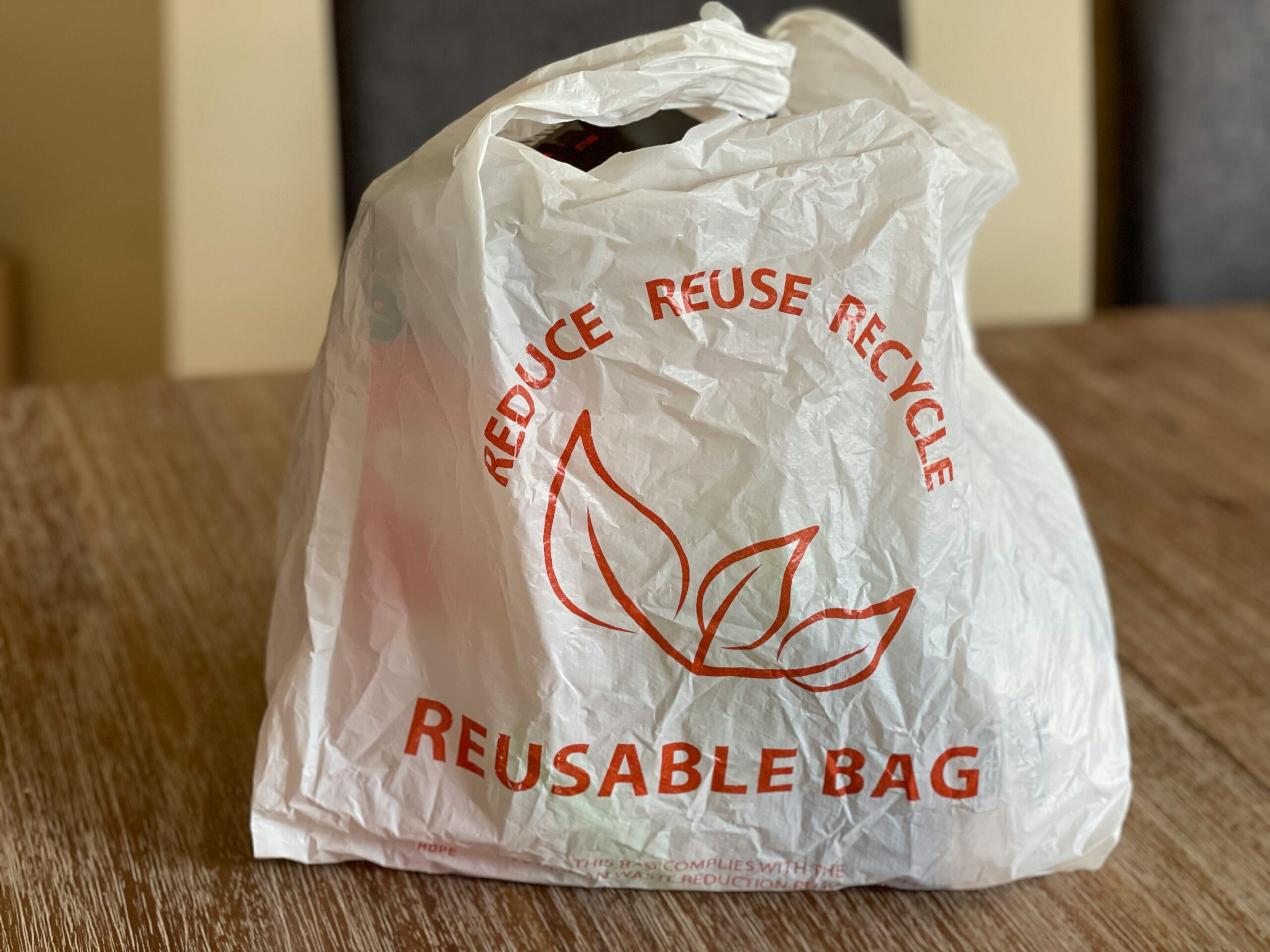
Photo by Polina Tankilevitch
By Aalok Bhatt
I’m part of a committed BYOB family. Our car is always stocked with the essentials; take a ride with us and you’ll hear liquid sloshing and metal clanging in the trunk. No, it’s not what you’re thinking—in my family, BYOB means “Bring Your Own Bags, Bottles, and Boxes.”
Long before municipalities started banning single-use plastic bags, they were banned in my household. On average, Americans use 561 billion plastic utensils every year. Less than 10% of all plastics have been recycled. There are a few possible reasons for that, but the likeliest is also the simplest: it’s cheaper to just make new plastic. In my family, that led us to keep stacks of reusable bags and steel water bottles in our cars. Outside the house, it led to legislation; in October 2019, I was part of a group of student protestors who attended town hall meetings in support of an ordinance banning single-use plastic bags in Millburn, New Jersey. After 120 municipalities (including my town) passed similar ordinances, the plastic legislation was signed into law by Governor Murphy in 2020.

But despite these efforts, there has remained a blind spot in our environmental activism: takeout containers. According to the Plastic Pollution Coalition, single-use plastic from takeout orders accounts for 20 million metric tons of plastic pollution—and most of it ends up in our natural environment, in landfills, in incinerators, or in developing countries. Single-use plastics are causing lasting damage to our ecosystem and wildlife. The Ocean Conservancy Cleanup Report indicates that the ten most prevalent pollutants include plastic beverage bottles, plastic lids, plastic straws, and foam takeout containers. Each of these are unfortunately a common part of the dining out experience.
What can be done about it? Following in the footsteps of New York’s 2023 Skip the Stuff policy, Jersey towns like Garwood, Red Bank, Maplewood, and Stone Harbor have passed a strict ordinance banning restaurants from including single-use plastic cutlery and condiment packets unless specifically requested. Certain restaurants are leaning in—like Barcade Jersey City, Arooga’s, and Bibi’z Lounge, which have been identified as “certified Green Restaurants” by Zero Waste New Jersey.
Barcade provides a useful template for other restaurants—composting food scraps, serving only draft beer (instead of cans and bottles), and using BPA-free receipts and corn-based takeout containers. It also uses biodegradable paper food trays, toilet paper made from recycled material, and environmentally certified soaps.
On the customer side, small ripples can make waves. In my family, that ripple is another reusable bag for the car, containing steel containers of all shapes and sizes. When we go to restaurants, my mother tucks the bag under the table for leftover packaging. Just last week, her container bag made an appearance at a fancy restaurant. Other diners were amused, but the restaurant owner noticed.
It can feel like a band-aid for a bigger problem, but these actions have positive effects. If enough of us adopt the BYOB lifestyle, we will see those actions reflected in shared spaces, like restaurants, and our community leaders will take notice. As a society, we can significantly reduce plastic pollution. It starts with a first step.
 Aalok Bhatt, a sophomore at Rutgers University, is an Eco Ambassador with the Center for Sustainable Development (CSD) at the Earth Institute at Columbia University.
Aalok Bhatt, a sophomore at Rutgers University, is an Eco Ambassador with the Center for Sustainable Development (CSD) at the Earth Institute at Columbia University.
